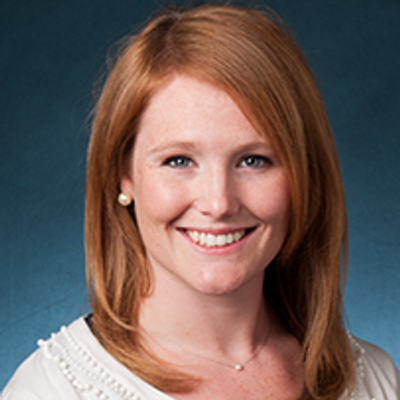Ph.D. Candidate Kate Maxwell Koegel Named 2016 Kauffman Dissertation Fellow

Doctoral candidate Kate Maxwell Koegel has been selected to receive the Kauffman Dissertation Fellowship, an academic recognition program established by the Kauffman Foundation to advance entrepreneurship research. She is one of 20 students to receive the $20,000 stipend to support the completion of her dissertation.
"Although it is a very competitive fellowship, I was hopeful (to be selected) because I believed in my proposal," Koegel said. "My fundamental attraction to entrepreneurship is based in the belief that it can be a tremendous vehicle for human progress on both a microeconomic and macroeconomic level."
According to the Kauffman Foundation, "This program helps launch the careers of emerging world-class entrepreneurship scholars … The findings generated by this effort will be translated into knowledge with immediate application for policymakers, educators, service providers, and entrepreneurs as well as high-quality academic research."
To that end, in order for policymakers and international organizations to more effectively target and aid entrepreneurs in developing countries, they must first understand the underlying dynamics behind these labor market decisions.
Much of the literature within labor economics tends to look at entrepreneurial decisions through the lens of the individual; however, Koegel's dissertation, "Entrepreneurship, Women and the Household: Exploring Occupational Choice in Urban Ghana," examines how and to what extent household structure guides an individual's decision to be wage-employed, self-employed, or work in the home. She is especially interested in determining the different constraints women face as opposed to men; for example, how women who have more household or childcare responsibilities are selecting into self-employment.
"Ghana is an appropriate context for me to explore this question because of its tradition of high female labor force participation," she said. "I'm really focused on trying to understand selection and sorting. I hope to fit an intrahousehold selection model using data from a household survey.”
In the long term, this research will form the basis for examining the impact of these labor choices on child outcomes and education.




